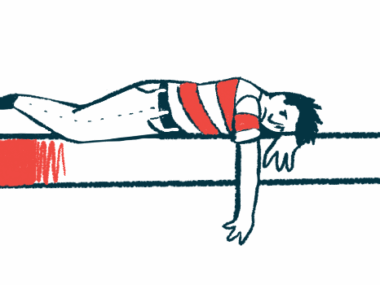Shedding light on how Parkinson’s disease sabotages self-worth
Columnist Dr. C explores Parkinson's emotional symptoms and devises a plan
Written by |

Recently, I discussed the dreaded dangers of despair. This darkness is, in many ways, linked to a loss of self-worth, something that happens with Parkinson’s disease. It happened to me.
I had a bad “Beast” day that overlapped with my evening “off period” and felt sick with an intestinal virus. A perfect storm triggered intense miserable feelings. That happens frequently. Generally, I don’t waste time and energy moaning about it. This evening was strikingly different.
Feelings of low self-worth didn’t adequately describe what was happening, but it was the only anchor available for my self-insight query. I turned to Mrs. Dr. C and asked, “I’m having odd feelings of low self-worth. Why do you think that might be?” She answered that it was probably because I had been so sick during the day. “You’re probably right,” I said unconvincingly.
There was a penetrating emptiness, not sadness. Self-worth was no longer there. Such an odd feeling. Making sense of it took me hours. This didn’t feel like the low self-worth that comes from getting a failing grade on a term paper, being yelled at by your parents, or being sick all day. It was as if my sense of self-worth was somehow erased and no longer accessible.
Meditation leads to answers
I had to wait until my evening off period passed. Then it became obvious that there was a distinction between the self-worth sensations inside the off period and the self-worth feelings afterward.
The “aha!” lightbulb illuminated the cause of these self-worth discrepancies. My self-worth was being sabotaged by Parkinson’s disease. It’s a very weird and difficult sensation to sit with using insight meditation.
When I first experienced this sabotaged self-worth, sitting with it was impossible. It was hard to sit and gently observe myself when the familiar concept of self was gone.
My first response was to race around in my mind seeking any rudder to stabilize the aimlessness. That’s where the imagery of low self-worth, followed by depression imagery, served to ground me. But that anchoring imagery is not real, not applicable; it’s distorted. The healing course is facing reality. The disappearance of the familiar self was due to Parkinson’s brain damage.
The midbrain regions damaged by the disease are responsible for how we sense ourselves. We need that regular “How are you doing?” check-in for adjusting regulatory systems. When we are too cold, we shiver to warm up. The opposite also happens: When we are too hot, we perspire to cool down. It all starts with our brain checking in to see how we are doing. It is part of our sense of self, and that process is broken with Parkinson’s. The result is that the sense of self can get distorted and sabotaged.
I find this amazing. Here I am, nearly a decade post-diagnosis, and I’m just figuring this out. If I’d grasped this earlier, it might have saved me from hundreds of hours wrestling with what seemed like depression. There is a form of temporary depression that happens after 48 to 60 hours of intense Parkinson’s pain — the dreaded darkness — but that’s an old dog that need not learn any new tricks.
Separating the darkness from the disappearance of self-worth is a new brain training strategy about which this old dog is salivating. It has great potential to improve my life with Parkinson’s.
The retraining self-worth strategy begins with mindfulness. I must be able to see the self-worth disappear as it is happening to do something about it. If it sneaks up on me — hijacks me — then it can send me cascading into a downward spiral. Once I’ve crossed over that spinning threshold, it’s tough to use any brain training technique.
After the sabotaged self-worth is clearly visualized, then I say to myself, “Ah, there you are. I know you. I am not letting you take over.” Then, sometimes waiting until the off period has passed, I marshal enough resources to meditate, calm the mind, redirect, then shift.
Meditation — cultivating the Zen mind to shift — helps me live better with Parkinson’s. This is true for two reasons.
First, these practices quiet the brain damage noise created by the disease, thereby decreasing symptom intensity and frequency.
Second, these practices allow for insight into one’s mind so that the effects created by Parkinson’s brain damage are more clearly seen. Often this personal insight process is not easy. This is especially true when I am observing the sabotage of self-worth.
I continually advocate for living mindfully and practicing Zen meditation. Discoveries like this one, about the sabotaged self-worth experience, happen because this practice is part of my daily life.
Note: Parkinson’s News Today is strictly a news and information website about the disease. It does not provide medical advice, diagnosis, or treatment. This content is not intended to be a substitute for professional medical advice, diagnosis, or treatment. Always seek the advice of your physician or another qualified health provider with any questions you may have regarding a medical condition. Never disregard professional medical advice or delay in seeking it because of something you have read on this website. The opinions expressed in this column are not those of Parkinson’s News Today or its parent company, Bionews, and are intended to spark discussion about issues pertaining to Parkinson’s disease.




Sam B
Thanks for this. It is very useful. In my own inner exploration I encounter deficient, neutral and and loving emptiness. I find that when I stay present to the deficiency without rejecting it, it tends to eliminate the veils and the emptiness lightens. It seems to me that the veils are ate due to PD and other traumas. And I believe that here is some overlap between the PD and trauma. So addressing trauma as part of my awareness and inquiry practice seems to work. I have had PD for 13 years and, until recently, was very low on symptoms.
Sam B
Thanks. This is very helpful.
Sam B
To elaborate on part of this article. In my inner work involving awareness and inquiry, I experience three types of emptiness: deficient, neutral and loving. I find that combining awareness practices trauma therapy helps to lighten the load. Being aware of inquiring into the division emptiness tends to loosen the veils. I believe that there is a relationship between trauma and Parkinson's. Working on the trauma issues is useful.
Rod Accardi
I really appreciate this article, Dr C. Visualizing the sabotage, and then (patiently) waiting is so helpful. This is the time when mindfulness practices are so important and simultaneously so difficult. These times of knowing and waiting can be very fruitful.
Mike
Dr. C.
You have special insights that is for sure. I have been researching mid-Brain damage some. Many many Parkinson’s folKs experience depression in the morning but we cannot just accept it . I always go back to the TBM you have sighted particularly Mindful Movement which helps my Brain Rewiring. That is my functional meditation. That Parkinson’s is a form of brain damage seems pretty obvious, how we combat it varies. Your insights challenge me to think about our plight. Fortunately Dr. C. I am blessed with a wife who will not let me just accept feeling bad in the morning.
Blessings, Mike